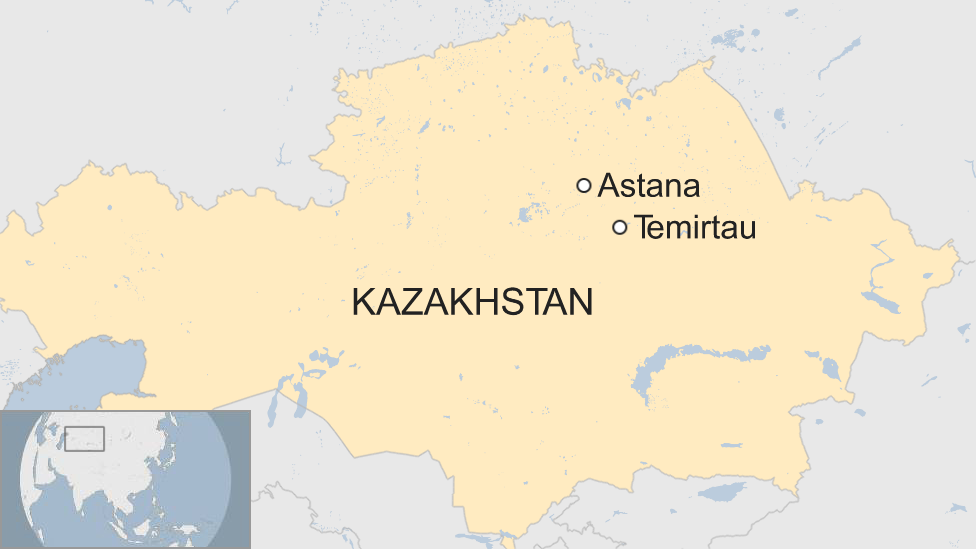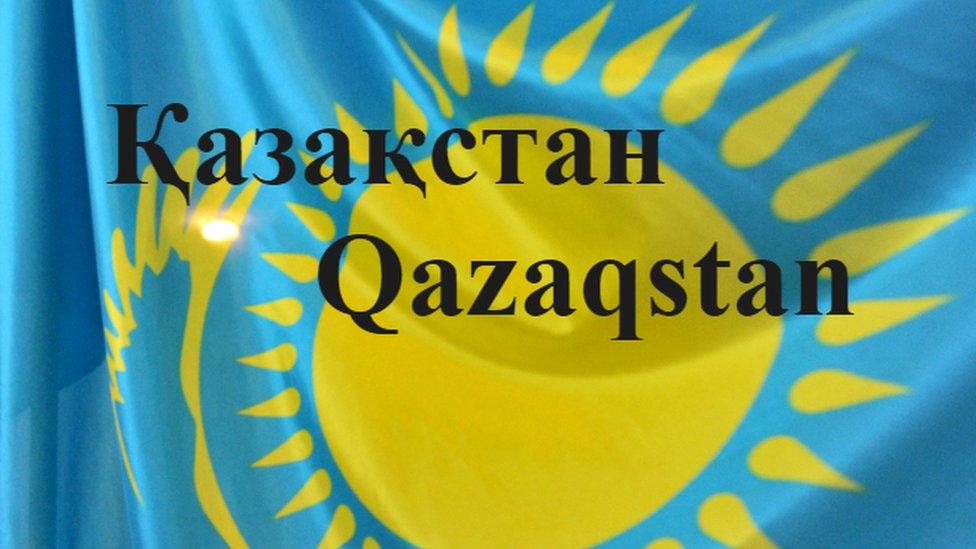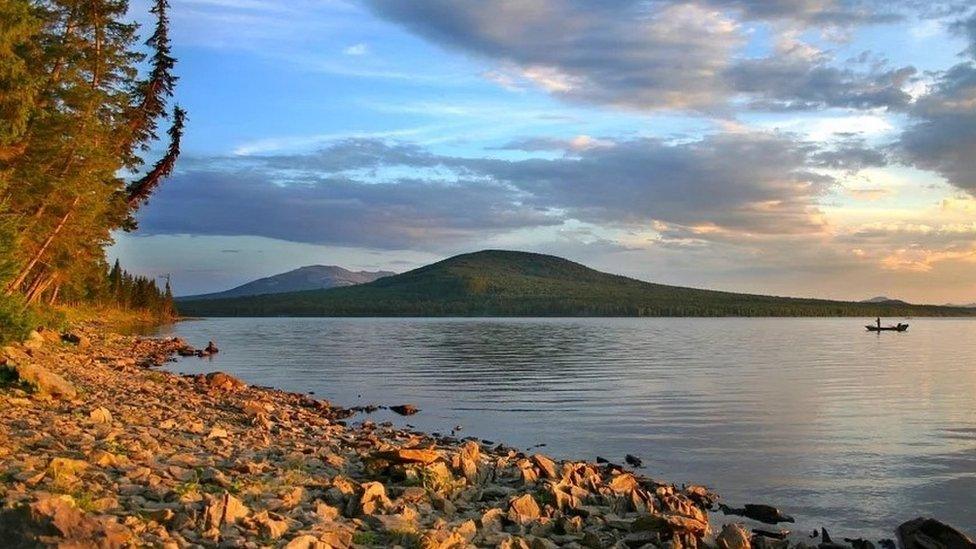Black snow troubles pollution-weary Kazakhs in Temirtau
- Published
Allow Instagram content?
This article contains content provided by Instagram. We ask for your permission before anything is loaded, as they may be using cookies and other technologies. You may want to read Meta’s Instagram cookie policy, external and privacy policy, external before accepting. To view this content choose ‘accept and continue’.
Much of the snow in the city of Temirtau in central Kazakhstan is black.
Instead of the usual white powder that children love to play with, the snow looks more like coal after a mysterious dark dust settled on the city in the beginning of January.
Many residents, worried about their health, took to social media to call on the government to investigate the incident.
"We can't live like this. We're suffocating here," wrote one user.
A special group of scientists, made up of both independent ecologists and government experts, is working to identify the causes.
Temirtau is the centre of Kazakhstan's iron industry and the home to the country's biggest steel production plant - Karaganda Metallurgical Combine, owned by ArcelorMittal Temirtau, a subsidiary of the global industrial giant ArcelorMittal.
Many in Temirtau believe that pollution from this metallurgical complex is what has turned the snow black.
Angry residents started collecting signatures for a petition addressed to Aliya Nazarbayeva, the youngest daughter of President Nursultan Nazarbayev and the head of the Association of Ecological Organisations of Kazakhstan.
Allow Instagram content?
This article contains content provided by Instagram. We ask for your permission before anything is loaded, as they may be using cookies and other technologies. You may want to read Meta’s Instagram cookie policy, external and privacy policy, external before accepting. To view this content choose ‘accept and continue’.
"The snow acts as a litmus test, revealing the frightening scale of these harmful emissions," the letter said. "All that dust from the plant ends up in our lungs, and in the lungs of our kids."
ArcelorMittal Temirtau does not deny that pollution caused by its plants may have played a major role here.
In December there was no wind and in such conditions, it acknowledged in a statement, "emissions do not dissipate and this most likely caused the change of the snow's colour".
The Karaganda region, where Temirtau is located, is considered the worst in the country in terms of harmful emissions.
In 2016, nearly 600,000 tons of harmful substances were released into the air in Karaganda according to Kazakhstan's statistics committee.
In December 2017 alone, the national meteorological agency recorded levels of hydrogen sulphide in Temirtau exceeding the government-mandated limit by more than 11 times.

- Published31 October 2017

- Published16 August 2017
